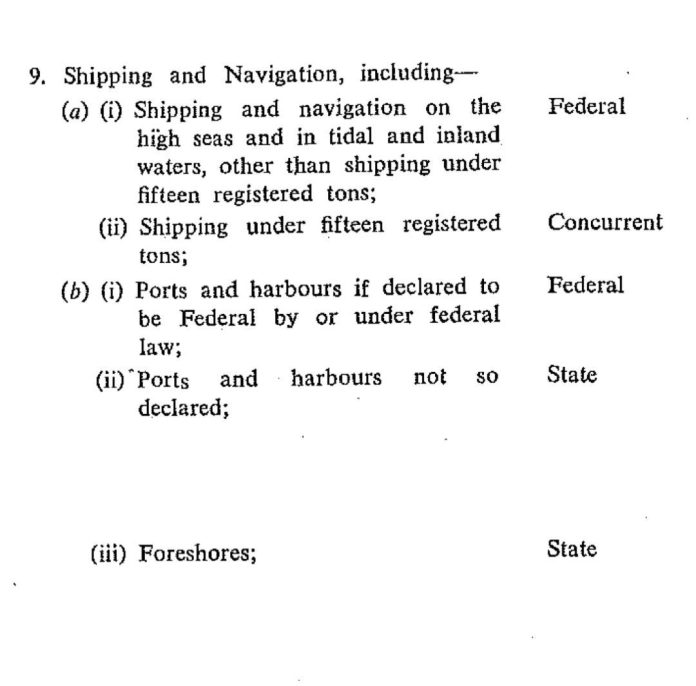By Remy Majangkim, MA63, Activist, Tutor, and Historian
KOTA KINABALU: Good day, everyone, and I wish you all a great weekend ahead. Today, we delve into the topic of cabotage policy and its meaning. Whether you’re familiar with the term or not, understanding its importance is essential. In a nutshell, cabotage policy refers to the rules and regulations that govern maritime transportation within a country’s territorial waters. It was introduced in 1980. By restricting foreign vessels from engaging in domestic trade, this policy seeks to protect the interests of the domestic maritime industry. However, navigating the intricacies of the Cabotage Policy can be confusing for many. That’s why we’re here to break it down for you and shed light on its implications.
In this sector, the ones who benefit the most are the ship owners in Sarawak. They incur additional costs when transporting goods from Port Klang or Tanjung Pelepas to the arriving ports in the Borneo States. As a result, the cost of goods increases due to these additional transportation charges.
Former Prime Minister Najib Razak announced the abolition of the Cabotage Policy, effective June 1, 2017. This policy was subsequently replaced with the transshipment policy. Transshipment involves the transfer of goods from one vessel to another or to another location, such as a warehouse. These goods are not intended for public consumption but rather serve as transit goods from point A to point B and are therefore exempt from service tax in Malaysia.
Blank sailing is a phenomenon in the shipping industry where a shipping line or carrier decides to skip a port or an entire voyage of a scheduled sailing route. This decision results in the accumulation of empty containers from one port to another, leading to imbalances within trading routes and shortages of containers.
The phenomenon of blank sailing can have several significant impacts on the shipping industry and the regions it serves:
Imbalance within Trading Routes: Blank sailing can disrupt the normal flow of container movement, leading to imbalances within trading routes as containers accumulate in certain areas while shortages occur in others.
Shortages of Containers: The decision to skip scheduled port calls or voyages can result in shortages of containers in certain regions, affecting the availability of containers for shippers and importers.
Regional Economic Impact: Areas heavily reliant on shipping, such as Malaysia, can experience economic repercussions due to the effects of blank sailing. The accumulation of empty containers and the resulting shortages can disrupt supply chains and trade flows, impacting local businesses and industries.
Impact on Malaysia
Malaysia, as indicated, has been significantly affected by blank sailing, with 31 calls skipped in 2021. This has likely led to challenges in container availability and trade disruptions within the region.
Before the establishment of Malaysia during the Inter Government Committee (IGC) discussions, it was mutually decided by all parties involved that there should be no discrimination against existing trade routes. This decision was made with the intention of promoting fair and equal trade opportunities for all. However, despite this agreement, the introduction of the Cabotage Policy in the 1980s disrupted these trade routes, giving rise to a whole new set of challenges that needed to be addressed.
The Cabotage Policy, has raised constitutional concerns and has become the responsibility of the federal government in relation to Malaysia and its partners. It is crucial for the government to carefully consider the implications of this policy and find a balance that ensures the smooth flow of trade while also upholding the principles of fairness and non-discrimination.
Now, with the new and exciting announcement that there are absolutely no restrictions whatsoever for foreign ships to arrive at any port in Malaysia, this will undoubtedly be an incredibly interesting and significant development that will surely have far-reaching implications for the maritime industry in the country. This new policy will undoubtedly open up a plethora of opportunities for international trade and commerce, as well as foster stronger diplomatic relations between Malaysia and other nations. The removal of these restrictions will undoubtedly streamline and facilitate the movement of goods and services, ultimately boosting economic growth and prosperity for the nation.


